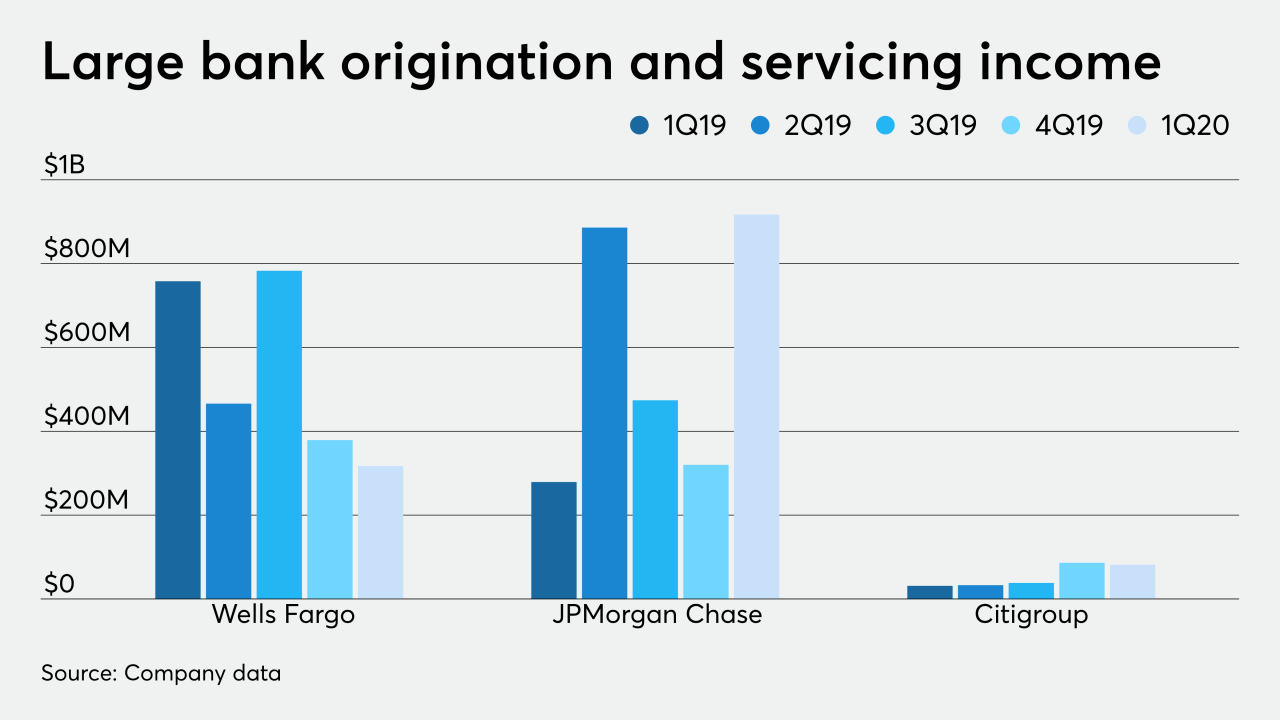-
Mortgage industry hiring and new job appointments for the week ending July 17.
July 17 -
The rise in late and suspended payments following the coronavirus outbreak in the United States may have helped the FHA realize it's high time to improve the process.
July 14 -
The banks logged strong year-over-year growth in gain-on-sale margins for mortgage loans.
July 14 -
The number of loans going into coronavirus-related forbearance fell for the fourth consecutive week, as the growth rate plummeted 21 basis points between June 29 and July 5, according to the Mortgage Bankers Association.
July 13 -
The amount far surpassed that of any other servicer required to purchase Ginnie Mae-backed loans that were 90 days past due.
July 13 -
A more than $5 billion offering going up for bid is one of the first large transactions seen since the coronavirus complicated trading.
July 10 - asr daily lead
Tricon American Homes launches the fifth securitization since mid-May secured by loans that finance institutional ownership and management of single-family residential rental homes.
July 7 -
The number of loans going into coronavirus-related forbearance dropped for the third consecutive week, as the growth rate fell 8 basis points between June 22 and June 28, according to the Mortgage Bankers Association.
July 7 -
The court struck down a 2015 update to the Telephone Consumer Protection Act, which permitted robocalls to cellphones for government-related debt collection.
July 6 -
By providing flexibility for property tax payments localities can help keep local businesses going and maintain their tax base for the future.
July 6 Greenberg Traurig LLP
Greenberg Traurig LLP








